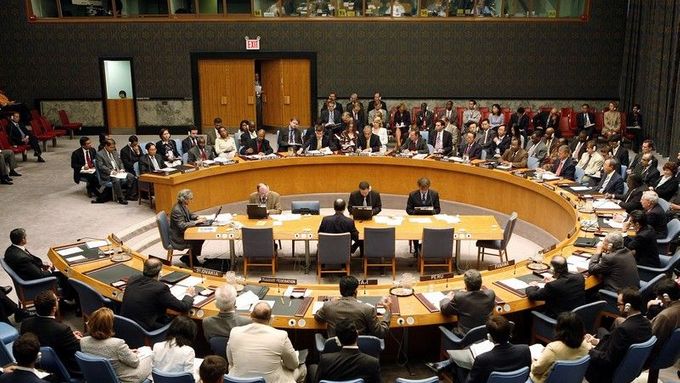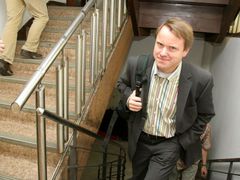New York/Prague - Months of intensive lobbying and global diplomatic offensive came to naught as the Czech Republic lost its bid for one of the nonpermanent seats on the United Nations Security Council on Tuesday.
In a contested race for a single seat for Eastern Europe the Czech Republic squared off against Croatia. And when two ballots showed Prague hopelessly lagging behind Zagreb, it pulled out of the race.
It prevented a possible repeat of last year's epic battle, then between Venezuela and U.S.-backed Guatemala, which saw 47 inconclusive rounds of balloting before both countries withdrew and Panama was elected as a compromise candidate.
While drawing applause from the assembly, the face-saving gesture of Czech diplomacy - and everything that preceded it - is bound to come under severe scrutiny once the top-level Czech delegation returns home.
Feelings of betrayal
The opposition will certainly be more than happy to exploit the occasion for unleashing yet another attack on the political representation which only a few days ago sounded confident about the country's chances of returning to the UN Security Council where it last served in 1995.
True, the contest between Prague and Zagreb was always expected to be close and both countries campaigned hard, with their respective cabinet leaders meeting UN Secretary-General Ban Ki-moon on the eve of the vote in New York.
But the turnout left many people feeling bitter, or perhaps even betrayed.
"The support for Croatia came even from countries which receive development aid from us," the Czech Deputy Prime Minister Martin Bursík said in an interview for Czech TV, shortly after the vote.
Was it the president's fault?
But he, more than anybody else, probably saw it coming, his very presence in New York being allegedly an attempt to prevent the looming disaster after a recent lecture in the very same building by the Czech president Václav Klaus who came to a UN summit on climate change in September to question the need of mounting a world-wide campaign against global warming.
Bursík, who serves as the Minister for the Environment in the Czech government and heads the Green Party, was quoted saying last week that the New York lecture of Mr. Klaus might have weakened the Czech Republic's candidacy.
As he further explained, he had allegedly received signals that some of the Pacific island states, whose very existence is threatened by the projected rise of the sea level in the future, switched their support in favor of Croatia after hearing the president's critical comments.
Bursík's last minute lobbying efforts together with those of Prime Minister Mirek Topolánek and Deputy PM Jiří Čunek proved little effective though and some tough criticism can be expected as people will be asking whether the tax-payers'money used for mounting the diplomatic offensive could not have been spent more wisely.









